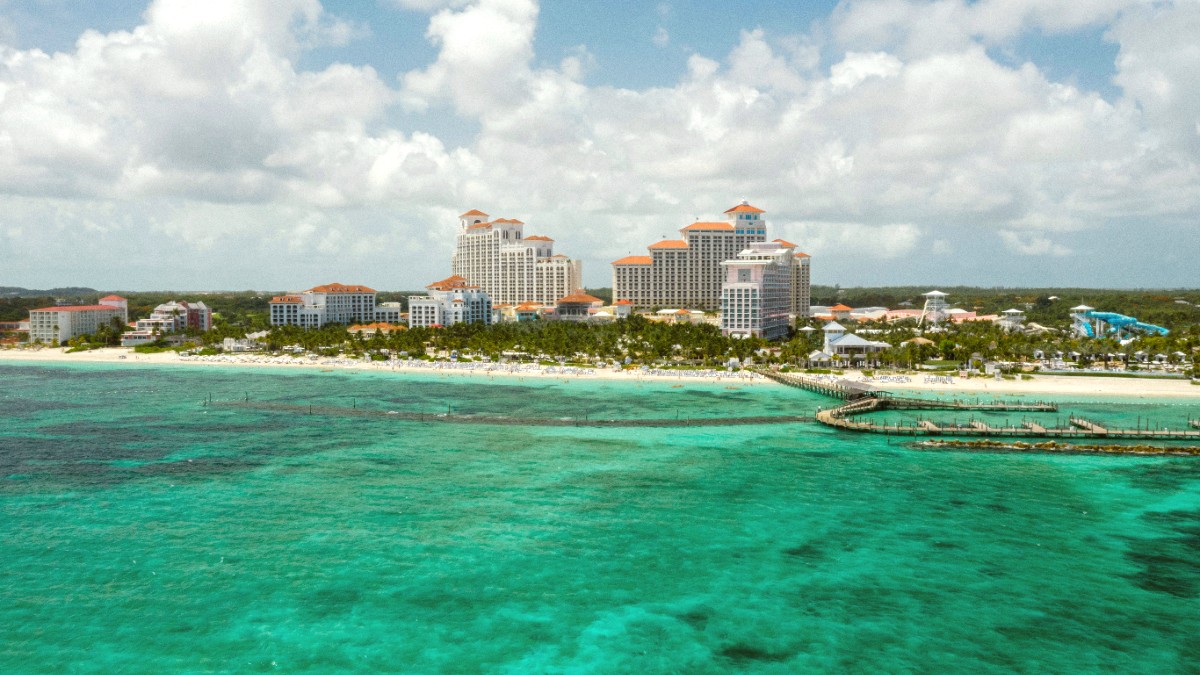
Out Islands, The Bahamas
Citizens of the United States, Canada, the United Kingdom, European Union countries (Schengen Area), Australia, and many other nations generally do not need a visa for tourist stays. US citizens typically obtain an entry stamp for stays up to 8 months. Others can stay for up to 3 months. Verify the complete list of visa-exempt countries on the official Bahamas government website to confirm your status. If your country is not on the visa-exempt list, apply for a Bahamian visa through the nearest Bahamian Embassy or Consulate. The process typically calls for a completed form, passport, photos, proof of itinerary, and evidence of financial stability.
Start this process well in advance of your planned travel dates. Generally, tourists do not pay specific entry fees upon arrival. Upon arrival, present your passport and a completed immigration card to an immigration officer. The immigration card often becomes available on your flight or at the port of entry. A brief interview about the purpose and length of your visit generally takes place.
General tourism activities in Eleuthera do not require special permits. Permits apply for certain commercial activities, large events, or specific research projects. Travelers generally do not need to show proof of vaccinations for entry unless arriving from an area with a Yellow Fever risk. Keeping routine vaccinations up to date is always a good practice for any international travel.
For visa applications or complex entry questions, consult the official IVisa or VisaHQ services for updated information.
June 1 to November 30
Mid-December to May: Dry, sunny, low humidity. Comfortable for all activities.
June to November: Higher temperatures, frequent brief afternoon thunderstorms, increased humidity. Risk of hurricanes.
May, Early June, November
Good weather, fewer visitors, slightly lower prices. Beaches offer more space.
Transition period, some risk of early or late season weather events.
Year-round opportunities
Mid-December to May for comfort; July and August for warmest water.
Cooler, drier months (December to April) for comfortable exploration.
This period brings dry, sunny weather, with average temperatures ranging from 70°F to 80°F (21°C to 27°C). Humidity remains low, and rainfall is minimal. Nights typically feel cooler, especially in January and February, adding value to a light jacket or sweater in your packing. This season has comfortable conditions for all outdoor activities.
Temperatures rise during summer, ranging from 80°F to 90°F (27°C to 32°C). This season also marks the wet period, with frequent, but typically brief, afternoon thunderstorms. Humidity levels increase, making the air feel warmer. Despite the rain, sunny periods still dominate most days. Travelers during this period typically monitor weather forecasts closely due to hurricane season.
Officially June 1 to November 30.
Typically August to October.
Stay informed about regional weather conditions.
Consider a policy that addresses hurricane-related disruptions. Services like World Nomads, SafetyWing, or Insubuy are options.
Some local businesses may close for staff holidays during low season.
Prices vary significantly based on your travel style and choices.
The official currency in Eleuthera is the Bahamian Dollar (BSD), fixed at 1:1 with the United States Dollar (USD). Both currencies find acceptance interchangeably. ATMs dispense Bahamian Dollars. Major credit cards (Visa, MasterCard, American Express) receive wide acceptance at larger establishments and resorts.
Tipping has customary practice in The Bahamas. Many restaurants, especially at resorts, often add a 15% gratuity automatically to the bill. If a gratuity is not included, a tip of 15-20% for good service is standard. For taxi drivers, 15% of the fare works as appropriate. Bellhops, porters, and housekeepers generally receive $1-$2 per bag or per day, respectively.
These estimates present a general idea of daily expenses in Eleuthera based on travel style.
Consider your health and safety a top concern when traveling to Eleuthera.
Eleuthera presents a safe destination with a relatively low crime rate compared to more populated Bahamian islands. Petty theft, like items taken from unattended vehicles or beach bags, occurs. Violent crime is rare but not absent. Always remain aware of your surroundings.
Lock car doors, avoid leaving valuables unattended on beaches or in unlocked vehicles, and remain aware of your surroundings, especially at night. Exercise caution if walking alone after dark. No specific "no-go" neighborhoods exist on the island.
Eleuthera has a high UV index. Apply broad-spectrum sunscreen with a high SPF, wear hats and sunglasses, seek shade during peak sun hours (10 AM - 4 PM), and stay hydrated.
Stay hydrated by drinking plenty of water.
Avoid prolonged direct sun exposure during midday.
Mosquitoes, especially at dawn and dusk, and sand flies (no-see-ums) appear. Use an effective insect repellent containing DEET or picaridin for protection. This is an item of significance for your comfort.
Wear light long sleeves and pants in the evenings.
Do not forget repellent, specifically for outdoor dining.
Awareness of potential hazards like jellyfish, sea urchins, and fire coral is wise. Avoid touching any marine life. Wear water shoes for protection on rocky or shell-strewn areas.
Observe marine life from a safe distance.
Do not walk barefoot on coral or rocky seabeds.
| Category | Details | Action |
|---|---|---|
| Medical Facilities | Several community clinics, smaller hospitals. Levy Medical Centre (Governor's Harbour) is the largest. | For serious emergencies, evacuation to Nassau or the United States appears necessary. |
| Emergency Services | Police, Fire, and Ambulance services. | Call 919 or 911. |
| Travel Insurance | Strongly suggested. Policy needs to cover medical emergencies, emergency medical evacuation, trip cancellation/interruption, and baggage loss. | Review policy details thoroughly. Consider providers like World Nomads, SafetyWing, or Insubuy. |